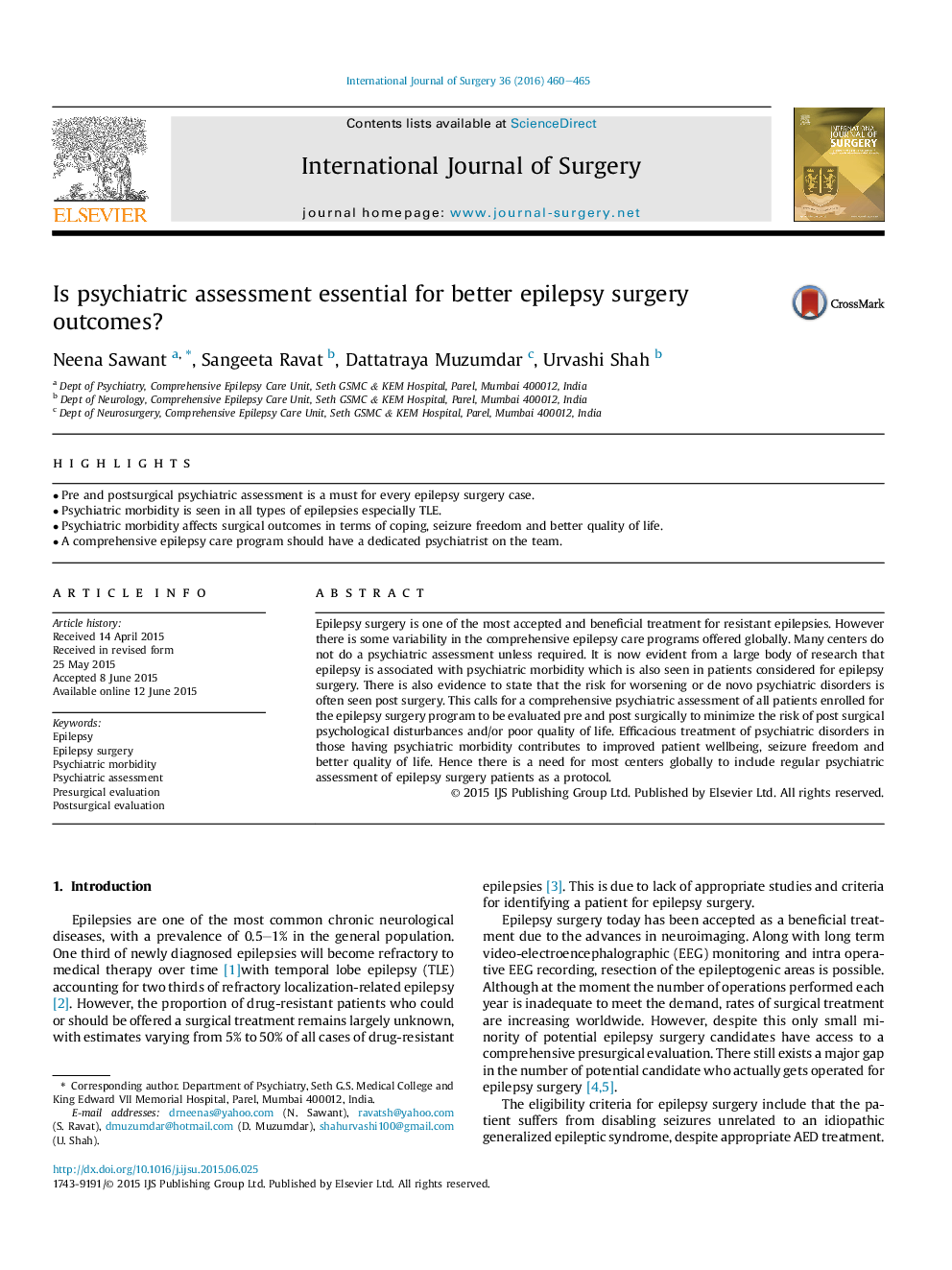| Article ID | Journal | Published Year | Pages | File Type |
|---|---|---|---|---|
| 5731962 | International Journal of Surgery | 2016 | 6 Pages |
â¢Pre and postsurgical psychiatric assessment is a must for every epilepsy surgery case.â¢Psychiatric morbidity is seen in all types of epilepsies especially TLE.â¢Psychiatric morbidity affects surgical outcomes in terms of coping, seizure freedom and better quality of life.â¢A comprehensive epilepsy care program should have a dedicated psychiatrist on the team.
Epilepsy surgery is one of the most accepted and beneficial treatment for resistant epilepsies. However there is some variability in the comprehensive epilepsy care programs offered globally. Many centers do not do a psychiatric assessment unless required. It is now evident from a large body of research that epilepsy is associated with psychiatric morbidity which is also seen in patients considered for epilepsy surgery. There is also evidence to state that the risk for worsening or de novo psychiatric disorders is often seen post surgery. This calls for a comprehensive psychiatric assessment of all patients enrolled for the epilepsy surgery program to be evaluated pre and post surgically to minimize the risk of post surgical psychological disturbances and/or poor quality of life. Efficacious treatment of psychiatric disorders in those having psychiatric morbidity contributes to improved patient wellbeing, seizure freedom and better quality of life. Hence there is a need for most centers globally to include regular psychiatric assessment of epilepsy surgery patients as a protocol.
